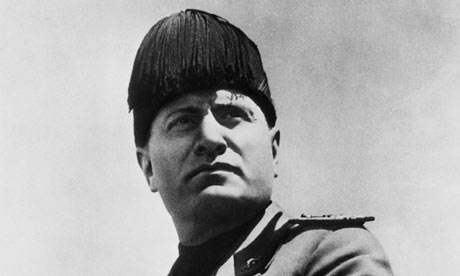The brother of a particle physicist under investigation for having possible links to terrorism says that the charges are "completely false" and his brother is innocent.
Yesterday, French authorities placed Adlène Hicheur, a postdoc at the Swiss Federal Institute of Technology in Lausanne (EPFL), under formal investigation for possible 'criminal association in relation to a terrorist undertaking'. He has been held by police since 8 October, after a raid at his family's home in the town of Vienne, southeastern France.
According to press reports, anti-terrorism police apparently have evidence that the 32-year-old may have had e-mail correspondence with "al-Qaeda in the Islamic Maghreb" — the North African branch of the terrorist organization al-Qaeda — about potential targets for terrorist attacks within France. The public prosecutor's office in Paris, whose anti-terrorism unit is in charge of the case, said they could not comment as the case was ongoing.
But speaking exclusively to Nature, Adlène Hicheur's brother Halim Hicheur claims that the charges are unjustified. He does not deny that family members frequently trade e-mails with people in Algeria. But he categorically denies there was any email correspondence with al-Qaeda. "Most of my family is from Algeria," he says. But he maintains that there is nothing in his family's background "that would have made us think about violence".
"We are Muslims, we have never hidden this," Halim adds.
Contrary to several press reports, Halim is a 30-year-old postdoc in biomechanics working in Germany and says that he was not arrested with Adlène on Thursday. "I have never been contacted by the police," he says, explaining that it was their 25-year-old youngest brother who was picked up by police and released without charge on 10 October.
Based on conversations with other family members, Halim believes that Adlène's arrest is probably connected to a land purchase in Algeria. Halim told Nature that just before the police raid, Adlène withdrew €13,000 (US$19,200) in cash with which to purchase land near the family's ancestral home of Setif in northeastern Algeria. He says that the police were initially asking questions about the money.
Atom smasher
Colleagues of Adlène consider him to be a shy but brilliant young physicist who specializes in esoteric data analysis and the alignment of massive particle detectors. "For everybody here it's really a surprise," says Jérôme Grosse, a spokesperson for EPFL, where Adlène has worked since 2006.
Adlène was born one of six siblings — three brothers and three sisters — to a working-class French-Algerian family. He placed first in theoretical physics in his class at the Ecole Normale Supérieure de Lyon, before enrolling in 2000 at the University of Savoie near Chambéry in France. While pursuing his PhD there, he studied the oscillations of particles containing bottom quarks, working at the BaBar experiment at the SLAC National Accelerator Laboratory in Menlo Park, California.
"He was very brilliant," says one physicist who has worked with Adlène but declined to be named because of the ongoing investigation. He often kept to himself but, the physicist adds, in a lab of theoretical physicists, his reserve was not seen as odd. "This personality is quite usual for our staff," he says.
ADVERTISEMENT
Adlène graduated in 2003, then later moved to the Rutherford Appleton Laboratory near Didcot in Oxfordshire, UK, where he helped with the alignment of ATLAS, one of the detectors on the Large Hadron Collider (LHC) — the world's most powerful particle accelerator located at CERN near Geneva, Switzerland. At EPFL, he worked on another LHC experiment known as LHC beauty (LHCb), testing and preparing a giant detector to collect more data on bottom quarks. Understanding such quarks and their anti-quark partners, physicists hope, could help explain the imbalance between matter and antimatter in the Universe.
In a statement, CERN said that it "does not carry out research in the fields of nuclear power or nuclear weaponry" and that it addressed "fundamental questions about the nature of matter and the Universe". The physicist who worked with Adlène adds that there is nothing from Adlène's high-energy physics training that could have been used in a terrorist attack. "We don't have any material or anything you could use for bad things," he says, "except maybe a hammer."
With additional reporting by Declan Butler
Corrected:
Adlène Hicheur placed first in theoretical physics in his class at the Ecole Normale Supérieure de Lyon prior to attending the University of Savoie in 2000. The story has been changed to reflect this.











